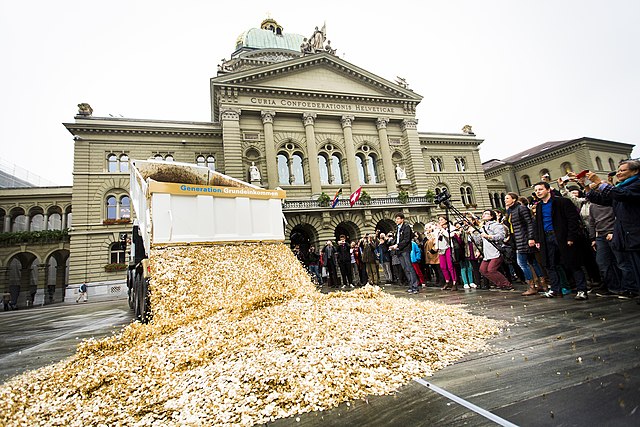Universal basic income around the world
Universal basic income (UBI) is discussed in many countries. This article summarizes the national and regional debates, where it takes place, and is a complement to the main article on the subject: universal basic income.
Omitara, one of the two poor villages in Namibia where basic income was tested from 2008 to 2009
Götz W. Werner, a German proponent of basic income
Guy Standing, a British basic income advocate
Universal basic income (UBI) is a social welfare proposal in which all citizens of a given population regularly receive a minimum income in the form of an unconditional transfer payment, i.e., without a means test or need to work. In contrast a guaranteed minimum income is paid only to those who do not already receive an income that is enough to live on. A UBI would be received independently of any other income. If the level is sufficient to meet a person's basic needs, it is sometimes called a full basic income; if it is less than that amount, it may be called a partial basic income. As of 2024, no country has implemented a full UBI system, but two countries—Mongolia and Iran—have had a partial UBI in the past. There have been numerous pilot projects, and the idea is discussed in many countries. Some have labelled UBI as utopian due to its historical origin.

In 2013, eight million 5-centime coins (one per inhabitant) were dumped on the Bundesplatz in Bern to support the 2016 Swiss referendum for a basic income (which was rejected 77%–23%).
Philippe Van Parijs in his library
Omitara, one of the two poor villages in Namibia where a local basic income was tested in 2008–2009





